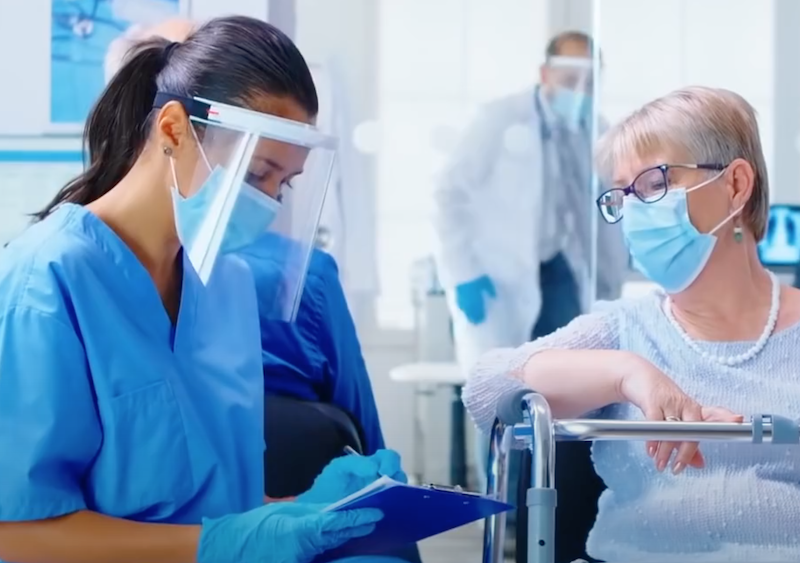 (21.3.2024) Der Anspruch auf Zahlung einer Vergütung für die Durchführung eines Corona-Tests erfordert zwingend, dass die getestete Person schriftlich oder elektronisch bestätigt hat, dass sie getestet wurde. Andernfalls hat das Testzentrum keinerlei Vergütungsanspruch gegen die Kassenärztliche Vereinigung (Verwaltungsgericht Münster, Urteil vom 11.3.2024 - 5 K 1987/23).
(21.3.2024) Der Anspruch auf Zahlung einer Vergütung für die Durchführung eines Corona-Tests erfordert zwingend, dass die getestete Person schriftlich oder elektronisch bestätigt hat, dass sie getestet wurde. Andernfalls hat das Testzentrum keinerlei Vergütungsanspruch gegen die Kassenärztliche Vereinigung (Verwaltungsgericht Münster, Urteil vom 11.3.2024 - 5 K 1987/23).
Der Fall:
Die Klägerin führte mit entsprechender behördlicher Genehmigung von bis Corona-Testst durch. Sie rechnete gegenüber der beklagten Kassenärztlichen Vereinigung insgesamt Tests mit einer Gesamtvergütung von EUR ab. Weil die Zahl der von der Klägerin an das Gesundheitsministerium gemeldeten Tests von der Zahl der gegenüber der Kassenärztlichen Vereinigung abgerechneten Tests abwich, führte die Kassenärztliche Vereinigung eine individuelle Prüfung durch. In diesem Zusammenhang verlangte die KV von der Betreiberin des Testzentrums nach § 7 Abs. 5 Nr. 8 TestV einen Nachweis der Durchführung der Tests durch schriftliche oder elektronische Bestätigung der getetsteten Personen, dass sie getestet wurden.
Eine solche Bestätigung konnte die Betreiberin des Testzentrums, die eine Software eines Dritten zur Abwicklung der Testungen verwendet hatte, aber nicht vorlegen. Die Betreiberin des Testzentrums meinte auch, § 7 Abs. 5 Nr. 8 TestV sehe eine nachträgliche Bestätigung und Dokumentation nicht vor.
Die KV verweigerte wegen Nichterfüllung der Dokumentationspflichten die Bezahlung sämtlicher abgerechneter Testleistungen.
Die Betreiberin des Testzentrums erhob Klage vor dem Verwaltungsgericht und verlangte Zahlung der Entgelte für die Corona-Tests in Höhe von rund 100.000 EUR.
Die Entscheidung:
Das Verwaltungsgericht wies die Klage auf Zahlung als unbegründet ab.
Das Gericht arbeitete heraus, dass die Tetsverordnung wirksam ist. Die Testverordnung verlange auch die Bestätigung eines bereits durchgeführten Tests speziell durch die gestestete Person. Dies ergebe sich durch die Auslegung von Sinn und Zweck sowie Wortlaut der Testverordnung. Die Einfügung des § 7 Abs. 5 Nr. 8 TestV habe insbesondere dazu gedient, einen Betrug durch Testzentren zu erschweren. Es reiche daher nicht aus, wenn zum Beispiel der Betreiber der Testsoftware die Durchführung des Tests bestätige, denn dies lasse sich zu leicht manipulieren. Die Forderung in § 7 Abs. 5 Nr. 8 TestV nach einem solchen Nachweis der Durchführung des Tests sei auch rechtmäßig.
Dann stellte das Gericht fest, dass die notwendigen Bestätigungen von der klagenden Betreiberin des Testzentrums nicht vorgelegt worden waren. Dafür trage sie aber die Beweislast.
Die von der Klägerin dem Gericht vorgelegten Terminbuchungen, die Bestätigungen einer Datenschutz- oder Einverständniserklärung oder die AGB des Softwarefirma oder das „Einchecken“ in der Teststelle entsprechen der hier erforderlichen nachträglichen Bestätigung des Getsteten nicht, so das Gericht Auch die Zusendung des Ergebnisses der Testung per Email reiche nicht aus. Das Gericht weist darauf hin, dass es mit der Verneinung der Erfüllung dieser Dokumentationspflicht der Betreiberin des Testzentrums keinen Betrug unterstellt, vielmehr erkläre es damit lediglich, dass die Betreiberin die Anforderungen der Testverordnung nicht erfüllt habe.
Das Gericht lässt offen, ob der Leistungserbringer auch sonstige Erklärungen der getesteten Personen vorlegen kann, die diesen Bestätigungen der getesteten Personen nach § 7 Abs. 5 Nr. 8 TestV gleichkommen und diese ersetzen. Denn die Klägerin hatte solche Erklätrungen nicht vorgelegt.
Praxisanmerkung:
Die Entscheidung des Gerichts ist richtig.
Die Testverordnung erfordert einen schriftlichen oder elektronische Bestätigung der getesteten Person über die Durchführung des Tests. Es ist zu begrüßen, dass nun erstmalig ein Gericht dies mit der nötigen Klarheit herausarbeitet.
Schriftlich kann diese Bestätigung erfolgen durch Unterschrift und Datum auf dem Laufzettel der Testung. Elektronisch kann dies erfolgen, wenn die getestete Person das Testergebnis auf einem Server abholt und für den Zugriff auf das Testergebnis zum Beispiel sein Geburtsdatum eingeben muss und die Software diesen Vorgang der Abfragung unter Eingabe des Geburtsdatums entspreched speichert. Die Klägerin konnte allerdings keinen dieser Nachweise vorlegen.
Sie hat auch darauf verzichtet, andere denkbare Nachweise für die Durchführung der Testungen zu beschaffen und dem Gericht vorzulegen - so wäre es durchaus denkbar und hier auch absolut ratsam gewesen, dem Gericht eidesstattliche Versicherungen einer nennenswerten Zahl von getesteten Personen vorzulegen, die eine Durchführung der Testung bestätigen. Folgerichtig wurde der Klägerin die Vergütung für die Corona-Tests versagt.
Die Vorlage solcher anderere denkbarer Nachweise ist auch insbesondere für ein mögliches Strafverfahren wegen Abrechnungsbetruges relevant. Zwar stellt das Nichtvorliegen der Bestätigungen nach § 7 Abs. 5 Nr. 8 TestV noch keinen Betrug dar, die Kassenärztlichen Vereinigungen machen der Staatsanwaltschaft aber regelmäßig Kontrollmitteilungen von solchen Fällen und diese können zu Strafverfahren führen. Der Betreiber eines Testzentrums sollte sich also bemühen, diese anderen denkbaren Nachweise aufzutreiben, solange sich die getesteten Personen noch an die Durchführung des Tests in diesem speziellen Testzentrum erinnern können.
Die Software, die die Betreiberin des Testzentrums verwendete, um die Corona-Tests zu erfassen und abzurechnen, erfasste keine Bestätigung nach § 7 Abs. 5 Nr. 8 TestV. Möglicherweise hat die Betreiberin der Software nach Einführung der verschärften Regelung des § 7 Abs. 5 Nr. 8 TestV keine juristische Prüfung durch einen Anwalt durchführen lassen, was genau § 7 Abs. 5 Nr. 8 TestV denn nun für eine Dokumentation erfordert.
Den Schaden trägt nun ersteinmal die Betreiberin des Testzentrums. Ob die Betreiber von Teststellen nun Schadensersatzansprüche gegen die Softwarehersteller haben, ist davon abhängig, ob zum einen die Softwarebetreiber sich vertraglich vepflichtet hatten, die Tests entsprechend der Testverordnung zu dokumentieren und ob zum anderen sie ihre Haftung nicht (wirksam) vertraglich durch Allgemeine Geschäftsbedingungen gegenüber den Betreibern der Testzentren ausgeschlossen haben.
In meiner Praxis tritt eben dieses Problem gehäuft auf. Offensichtlich haben mehrere Softwarehersteller die Anforderungen an die Dokumentation völlig verkannt. Wer gegen die KV auf Zahlung der Testvergütungen klagt, sollte in jedem Fall dem Softwarehersteller den Streit verkünden lassen, um seine Rechte gegenüber dem Softwarehersteller bestmöglich zu wahren.
